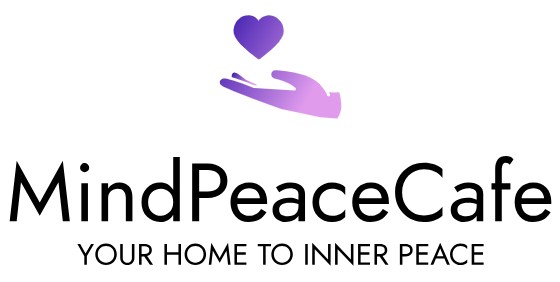Uncovering the Power of Mindfulness Apps to Transform Your Spiritual Journey

Mindfulness has taken the world by storm, and with the rise of mindfulness apps, it’s easier than ever to cultivate a sense of calm and clarity in our chaotic lives. But amidst the hype, many of us have questions: Are these apps a spiritual revolution, or just a fleeting trend? Can they truly help us achieve a deeper sense of inner peace, or are they just a quick fix?
In this article, we’ll delve into the world of mindfulness apps, exploring the research behind their effectiveness, and uncovering the lesser-known benefits that can transform your spiritual journey. We’ll examine the science behind mindfulness, and explore how these apps can help you cultivate self-awareness, emotional intelligence, and compassion.
From solo practice to community connection, we’ll explore the role of mindfulness apps in building spiritual communities, and how they can facilitate connection and growth. Whether you’re a seasoned mindfulness practitioner or just starting out, this article will give you a deeper understanding of the impact of mindfulness apps on your spiritual journey, and inspire you to harness their power to transform your life.
1. Mindfulness Apps: A Spiritual Revolution or Just a Fad?
In recent years, mindfulness apps have taken the world by storm, with millions of people around the globe turning to their smartphones to find peace and tranquility in the midst of chaos. But as the popularity of these apps continues to soar, many of us can’t help but wonder: are they a spiritual revolution, or just a fleeting trend? The truth is, mindfulness apps have been a game-changer for many people, providing a convenient and accessible way to cultivate mindfulness and reduce stress.
The rise of mindfulness apps can be attributed to a growing desire for inner peace and well-being in a world that’s increasingly fast-paced and complex. With the constant barrage of notifications, social media, and other digital distractions, it’s easy to feel overwhelmed and disconnected from our own thoughts and emotions. Mindfulness apps offer a solution to this problem, providing a safe and guided space to slow down, breathe, and focus on the present moment.
According to a recent report, the mindfulness app market is expected to reach $2.5 billion by 2025, with over 2,000 mindfulness apps available for download. With so many options to choose from, it’s clear that mindfulness apps are here to stay. But what’s behind their popularity, and how can they truly support our spiritual journeys? In the following sections, we’ll delve deeper into the science behind mindfulness apps, and explore the surprising benefits they can bring to our lives.
The Rise of Mindfulness Apps: A Market on the Rise
The mindfulness app industry has experienced a remarkable surge in growth, with no signs of slowing down. According to a recent report, the global mindfulness app market is expected to reach $2.5 billion by 2025, growing at a compound annual growth rate (CAGR) of 44.6% from 2020 to 2025. This rapid growth can be attributed to the increasing awareness of mental health, the need for stress relief, and the demand for convenient and accessible wellness solutions.
The rise of mindfulness apps can also be attributed to the increasing adoption of mobile devices and the growing popularity of digital health and wellness. With millions of people around the world using smartphones, mindfulness apps have become an attractive solution for individuals seeking to manage their mental health, improve their sleep, and increase their overall sense of well-being. Moreover, the COVID-19 pandemic has accelerated the growth of the mindfulness app industry, as people have turned to digital solutions to cope with anxiety, stress, and isolation.
The popularity of mindfulness apps is driven by their ability to provide a convenient, accessible, and personalized approach to mindfulness. With features such as guided meditation, mood tracking, and personalized coaching, mindfulness apps have become an essential tool for individuals seeking to cultivate mindfulness and improve their overall well-being. As the demand for mindfulness apps continues to grow, it’s clear that they are here to stay, and will play a significant role in shaping the future of mental health and wellness.
The Skeptics’ Corner: Addressing Common Concerns
As mindfulness apps continue to gain popularity, so do the concerns and criticisms surrounding their effectiveness. Some skeptics argue that mindfulness apps are a quick fix, a superficial solution to deeper mental health issues. Others claim that they are simply a trend, a fleeting fad that will soon fade away. But what’s the truth behind these criticisms? Are mindfulness apps truly a substitute for traditional therapy, or are they a valuable tool in the pursuit of mental wellness?
One common concern is that mindfulness apps lack the personal touch and human connection that traditional therapy provides. While it’s true that apps can’t replace the expertise of a trained therapist, many mindfulness apps are designed to complement traditional therapy, not replace it. In fact, many therapists and mental health professionals are now incorporating mindfulness apps into their treatment plans, as a way to provide additional support and resources to their clients. Moreover, mindfulness apps can provide a sense of community and connection, through online forums and social features, which can be especially helpful for those who struggle to access in-person therapy.
Another criticism is that mindfulness apps are too simplistic, that they oversimplify complex mental health issues and promise unrealistic results. While it’s true that mindfulness apps are not a magic solution, many apps are designed to provide a clear and structured approach to mindfulness, with guided meditations, personalized coaching, and evidence-based techniques. By addressing common concerns and myths, we can gain a clearer understanding of the role that mindfulness apps can play in our mental health journey, and harness their potential to support our well-being.
2. The Science Behind Mindfulness Apps: What Does the Research Say?

The scientific community has long been interested in the potential benefits of mindfulness, and recent research has turned its attention to the effectiveness of mindfulness apps. Studies have shown that mindfulness apps can have a significant impact on both mental and physical health, reducing symptoms of anxiety and depression, improving sleep quality, and even lowering blood pressure. One study published in the Journal of Medical Internet Research found that mindfulness app users experienced a significant reduction in stress and anxiety levels, compared to those who did not use the app.
Research has also shed light on how mindfulness apps can affect the brain. Neuroimaging studies have shown that regular mindfulness practice can lead to changes in brain structure and function, including increased gray matter in areas related to attention, emotion regulation, and memory. Mindfulness apps have been shown to increase activity in these areas, suggesting that they can have a positive impact on cognitive function and emotional well-being. Furthermore, studies have found that mindfulness apps can be just as effective as in-person mindfulness interventions, making them a convenient and accessible option for those seeking to cultivate mindfulness.
The evidence is clear: mindfulness apps are a valuable tool in the pursuit of mental wellness. By delving into the science behind these apps, we can gain a deeper understanding of their potential benefits and how they can be used to support our overall health and well-being. Whether you’re a seasoned mindfulness practitioner or just starting out, the research suggests that mindfulness apps can be a powerful tool in your journey towards greater calm, clarity, and inner peace.
The Impact of Mindfulness on Mental Health
Mental health is a critical aspect of our overall well-being, and mindfulness apps have been touted as a potential solution to the growing problem of stress, anxiety, and depression. But what does the research say? Studies have consistently shown that mindfulness apps can have a significant impact on mental health, reducing symptoms of anxiety and depression, and improving overall mood and well-being. One study published in the Journal of Clinical Psychology found that mindfulness app users experienced a significant reduction in symptoms of depression, compared to those who did not use the app.
The impact of mindfulness on mental health is thought to be due to its ability to increase self-awareness, reduce rumination, and promote emotional regulation. By encouraging users to focus on the present moment, mindfulness apps can help to reduce worries about the future or regrets about the past, and promote a sense of calm and clarity. Furthermore, mindfulness apps have been shown to increase production of neurotransmitters such as serotonin and dopamine, which are critical for mood regulation and emotional well-being.
The evidence is clear: mindfulness apps can be a powerful tool in the management of mental health. By providing a convenient and accessible way to cultivate mindfulness, these apps can help to reduce symptoms of stress, anxiety, and depression, and promote overall mental well-being. Whether you’re struggling with mental health issues or simply looking to improve your overall well-being, mindfulness apps are definitely worth considering.
The Neuroscience of Mindfulness: How Apps Affect the Brain
The neuroscience of mindfulness is a fascinating field that has shed light on the ways in which mindfulness practices can alter brain activity and promote positive changes. Research has shown that mindfulness apps can have a profound impact on brain structure and function, increasing gray matter in areas related to attention, emotion regulation, and memory. One study published in the journal NeuroImage found that mindfulness app users experienced increased activity in the prefrontal cortex, an area of the brain responsible for decision-making and impulse control.
Mindfulness apps have also been shown to affect the brain’s default mode network, which is responsible for mind-wandering and rumination. By encouraging users to focus on the present moment, mindfulness apps can help to reduce activity in this network, leading to a decrease in stress and anxiety. Furthermore, mindfulness apps have been shown to increase production of neurotransmitters such as serotonin and dopamine, which are critical for mood regulation and emotional well-being.
The implications of these findings are profound: mindfulness apps can be a powerful tool in promoting positive changes in the brain. By altering brain activity and promoting increased gray matter, mindfulness apps can help to improve cognitive function, emotional regulation, and overall well-being. Whether you’re looking to improve your focus, reduce stress, or simply feel more calm and centered, mindfulness apps are definitely worth considering.
3. Beyond Meditation: The Surprising Benefits of Mindfulness Apps
While meditation is often the most well-known benefit of mindfulness apps, there are many other surprising advantages that can enhance your spiritual journey. One of the lesser-known benefits of mindfulness apps is their ability to improve sleep quality. By promoting relaxation and reducing stress, mindfulness apps can help you fall asleep faster and sleep more soundly. This can have a profound impact on your overall well-being, as sleep plays a critical role in physical and mental health.
Another surprising benefit of mindfulness apps is their ability to increase emotional intelligence. By teaching users to recognize and regulate their emotions, mindfulness apps can help improve relationships, decision-making, and overall emotional well-being. This can be especially beneficial in the workplace, where emotional intelligence is a key predictor of success. Furthermore, mindfulness apps can also help improve focus and concentration, leading to increased productivity and creativity.
The benefits of mindfulness apps extend far beyond meditation, and can have a profound impact on many areas of life. By incorporating mindfulness into your daily routine, you can experience improved sleep, increased emotional intelligence, and enhanced focus and concentration. Whether you’re looking to improve your overall well-being, enhance your spiritual journey, or simply feel more calm and centered, mindfulness apps are a valuable tool that can help you achieve your goals.
Cultivating Self-Awareness and Emotional Intelligence
Cultivating self-awareness and emotional intelligence is a crucial step in living a happy, healthy, and fulfilling life. Mindfulness apps can be a powerful tool in this journey, providing a safe and guided space to explore your thoughts, emotions, and behaviors. By encouraging users to tune in to their emotions and physical sensations, mindfulness apps can help you develop a deeper understanding of yourself and your motivations.
One of the key ways in which mindfulness apps promote self-awareness is through journaling and reflection. Many apps offer prompts and exercises to help users identify their thoughts, feelings, and behaviors, and to recognize patterns and habits that may be holding them back. This increased self-awareness can lead to greater emotional intelligence, as users become better able to recognize and regulate their emotions. Furthermore, mindfulness apps can also help users develop a greater sense of compassion and understanding towards themselves, leading to increased self-acceptance and confidence.
The benefits of cultivating self-awareness and emotional intelligence through mindfulness apps are numerous. By gaining a deeper understanding of yourself and your emotions, you can improve your relationships, make better decisions, and live a more authentic and meaningful life. Whether you’re looking to improve your mental health, enhance your personal growth, or simply feel more calm and centered, mindfulness apps can provide a valuable tool to support your journey.
Fostering Compassion and Empathy: The Social Benefits of Mindfulness
Mindfulness apps are not only beneficial for individual growth, but also have a profound impact on our social relationships. By cultivating compassion and empathy, mindfulness apps can help us become more understanding, supportive, and caring towards others. This can lead to stronger, more meaningful relationships, and a greater sense of connection and community. One of the key ways in which mindfulness apps promote compassion and empathy is through loving-kindness meditation. This practice involves directing kind thoughts towards oneself and others, and can help increase feelings of warmth, compassion, and understanding.
Mindfulness apps can also help us develop a greater sense of empathy by encouraging us to put ourselves in others’ shoes. By practicing mindfulness, we can become more aware of our own thoughts, feelings, and behaviors, and can better understand the experiences of those around us. This can lead to greater tolerance, patience, and understanding, and can help us build stronger, more supportive relationships. Furthermore, mindfulness apps can also help us develop a greater sense of gratitude and appreciation for others, leading to more positive and uplifting interactions.
The social benefits of mindfulness apps are far-reaching, and can have a profound impact on our daily lives. By cultivating compassion and empathy, we can build stronger, more meaningful relationships, and create a more positive and supportive community. Whether you’re looking to improve your relationships, enhance your social connections, or simply feel more connected and compassionate towards others, mindfulness apps can provide a valuable tool to support your journey.
4. From Solo Practice to Community Connection: The Role of Mindfulness Apps in Building Spiritual Communities
Mindfulness apps have traditionally been seen as a solo practice, a way for individuals to cultivate mindfulness and inner peace in the comfort of their own homes. However, as the popularity of mindfulness apps grows, so too does their potential to facilitate connection and community building. Many mindfulness apps now offer features that enable users to connect with like-minded individuals, share their experiences, and join online communities. This can be a powerful way to build spiritual connections, and to create a sense of belonging and support.
One of the key ways in which mindfulness apps facilitate connection and community building is through online forums and discussion groups. These spaces provide a safe and supportive environment for users to share their thoughts, feelings, and experiences, and to connect with others who share similar interests and goals. Many apps also offer live meditation sessions, workshops, and events, which can help users connect with others in person. This can be a powerful way to build relationships, and to create a sense of community and connection.
The potential of mindfulness apps to facilitate connection and community building is vast. By providing a platform for users to connect with others, mindfulness apps can help create a sense of belonging and support, and can facilitate meaningful relationships and connections. Whether you’re looking to connect with others who share your spiritual interests, or simply want to feel more supported and connected, mindfulness apps can provide a valuable tool to support your journey.
The Rise of Digital Spiritual Communities
The world is witnessing a profound shift in the way we approach spiritual growth and development. With the rise of digital technologies, online spiritual communities are becoming increasingly popular, offering a sense of connection and belonging to individuals from all walks of life. Mindfulness apps are at the forefront of this trend, providing a platform for users to connect with like-minded individuals, share their experiences, and engage in meaningful conversations. This shift towards digital spiritual communities is not only convenient, but also allows for greater accessibility and inclusivity, making spiritual growth and development more accessible to people from all over the world.
The growing trend of online spiritual communities can be attributed to the increasing desire for connection and community in today’s fast-paced and often isolating world. Mindfulness apps have responded to this need by creating online spaces that facilitate connection, support, and growth. These communities are often centered around shared values and goals, providing a sense of belonging and purpose to their members. Whether you’re looking to connect with others who share your spiritual interests, or simply want to feel more supported and connected, digital spiritual communities are offering a new way to experience spiritual growth and development.
As the popularity of digital spiritual communities continues to grow, we can expect to see new and innovative ways in which mindfulness apps will facilitate this shift. From online meditation sessions to virtual workshops and events, the possibilities are endless. With the rise of digital spiritual communities, the future of spiritual growth and development looks bright, and mindfulness apps are at the forefront of this exciting new trend.
Mindfulness Apps as a Bridge to In-Person Connections
Mindfulness apps have often been seen as a solo practice, a way for individuals to cultivate mindfulness and inner peace in the comfort of their own homes. However, many mindfulness apps are now bridging the gap between online and offline connections, providing a platform for users to connect with like-minded individuals and expand their spiritual circle. By facilitating online connections and community building, mindfulness apps are empowering users to take their spiritual growth to the next level, and to form meaningful relationships with others who share similar interests and goals.
One of the key ways in which mindfulness apps are facilitating in-person connections is through online meetups and events. Many apps now offer features that enable users to connect with others in their local area, and to organize in-person meditation sessions, workshops, and events. This can be a powerful way to build relationships, and to create a sense of community and connection. Additionally, mindfulness apps are also providing users with the opportunity to connect with others who share similar spiritual interests, and to learn from experienced practitioners and teachers.
The potential of mindfulness apps to bridge the gap between online and offline connections is vast. By providing a platform for users to connect with others, mindfulness apps are empowering individuals to take their spiritual growth to the next level, and to form meaningful relationships that can last a lifetime. Whether you’re looking to connect with others who share your spiritual interests, or simply want to expand your spiritual circle, mindfulness apps are offering a new way to experience spiritual growth and development.
5. Embracing the Future of Spiritual Growth: How Mindfulness Apps Can Complement Your Journey
As we look to the future of spiritual growth and development, it’s clear that mindfulness apps are set to play a major role. By providing a convenient and accessible way to cultivate mindfulness and inner peace, these apps are empowering individuals to take their spiritual journey to the next level. But what does the future of spiritual growth hold, and how can mindfulness apps complement our journey? The possibilities are endless, and the impact is already being felt. From personalized meditation sessions to AI-driven coaching, mindfulness apps are revolutionizing the way we approach spiritual growth and development.
In the future, we can expect to see mindfulness apps become even more sophisticated, using cutting-edge technologies like AI and VR to create immersive and transformative experiences. We can also expect to see a greater emphasis on community building, with mindfulness apps providing a platform for users to connect with others who share similar spiritual interests. The potential for growth and development is vast, and the possibilities are endless. As we embark on this exciting new chapter in the evolution of spiritual growth, mindfulness apps are poised to play a leading role.
The future of spiritual growth is bright, and mindfulness apps are helping to pave the way. By embracing the possibilities of these innovative tools, we can unlock new levels of inner peace, clarity, and spiritual connection. Whether you’re just starting out on your spiritual journey or are a seasoned practitioner, mindfulness apps are set to revolutionize the way we approach spiritual growth and development. Get ready to experience the transformative power of mindfulness like never before.
Mindfulness Apps as a Catalyst for Personal Growth
Mindfulness apps have the potential to be a powerful catalyst for personal growth, sparking meaningful transformations and lasting change in individuals who use them. By providing a convenient and accessible way to cultivate mindfulness and inner peace, these apps are empowering individuals to take control of their own growth and development. Through regular practice, users can develop a greater sense of self-awareness, emotional intelligence, and compassion, leading to profound shifts in their perspective, behavior, and relationships.
One of the key ways in which mindfulness apps can spark personal growth is by helping individuals to identify and challenge negative thought patterns and behaviors. By becoming more aware of their thoughts, emotions, and actions, users can begin to break free from limiting beliefs and habits, and adopt more positive and empowering ones. This can lead to greater confidence, resilience, and overall well-being, as well as improved relationships and a greater sense of purpose and direction.
As users continue to practice and grow, they can experience a ripple effect of positive change in their lives, impacting not only their own well-being, but also the lives of those around them. By using mindfulness apps as a catalyst for personal growth, individuals can unlock their full potential, and live a more authentic, meaningful, and fulfilling life. Whether you’re seeking to overcome anxiety, build confidence, or simply find greater peace and happiness, mindfulness apps can be a powerful tool to support your journey.
The Future of Mindfulness: Trends, Innovations, and Possibilities
As we look to the future of mindfulness, it’s clear that the landscape is rapidly evolving. With advancements in technology, AI, and VR, the possibilities for mindfulness apps are endless. In the coming years, we can expect to see even more innovative and personalized approaches to mindfulness, tailored to individual needs and goals. From AI-driven coaching to immersive VR experiences, the future of mindfulness is poised to be more exciting and transformative than ever.
One of the key trends emerging in the world of mindfulness is the integration of mindfulness with other wellness practices, such as meditation, yoga, and breathwork. This holistic approach is expected to revolutionize the way we approach mental health and well-being, providing a more comprehensive and integrated approach to self-care. Additionally, we can expect to see greater emphasis on community building, with mindfulness apps providing a platform for users to connect with others who share similar spiritual interests.
As the boundaries of mindfulness continue to expand, we can expect to see a greater impact on the spiritual landscape as a whole. With the rise of mindfulness apps, we can anticipate a shift towards a more conscious and compassionate society, where individuals are empowered to live their most authentic and fulfilling lives. Whether you’re a seasoned mindfulness practitioner or just starting out, the future of mindfulness is an exciting and promising one, full of possibilities and potential for growth and transformation.
What is the most effective way to use mindfulness apps for spiritual growth?
The most effective way to use mindfulness apps for spiritual growth is to commit to regular practice, ideally 10-15 minutes per day, and to focus on cultivating self-awareness, emotional intelligence, and compassion. Consistency is key, so try to make mindfulness a daily habit.
Can mindfulness apps replace traditional meditation and mindfulness practices?
No, mindfulness apps are not meant to replace traditional meditation and mindfulness practices, but rather to complement them. They can be a convenient and accessible way to cultivate mindfulness, but they should not replace the benefits of in-person meditation and mindfulness practices.
How do I choose the best mindfulness app for my spiritual growth?
When choosing a mindfulness app, consider your goals, preferences, and level of experience. Look for apps that offer personalized guidance, tracking features, and a variety of meditation and mindfulness exercises. Read reviews and try out a few options to find the one that resonates with you the most.
Can mindfulness apps be used in conjunction with other spiritual practices?
Yes, mindfulness apps can be used in conjunction with other spiritual practices, such as yoga, prayer, or journaling. In fact, incorporating mindfulness into your existing spiritual routine can enhance your overall spiritual growth and development.
How can I ensure that I’m using mindfulness apps in a way that supports my spiritual growth?
To ensure that you’re using mindfulness apps in a way that supports your spiritual growth, set clear intentions, focus on cultivating self-awareness and compassion, and use the apps as a tool to support your spiritual practice, rather than a replacement for it.




